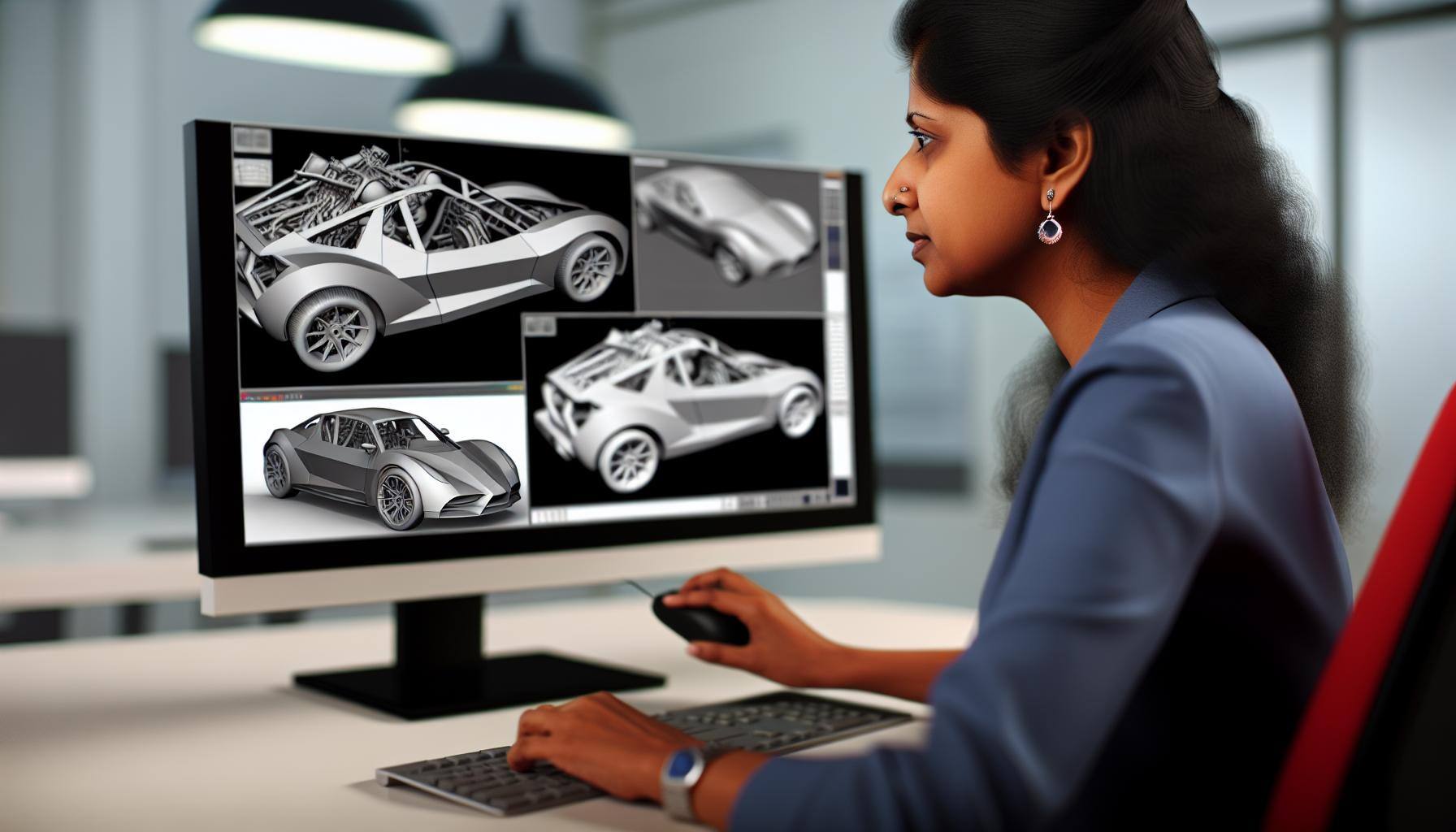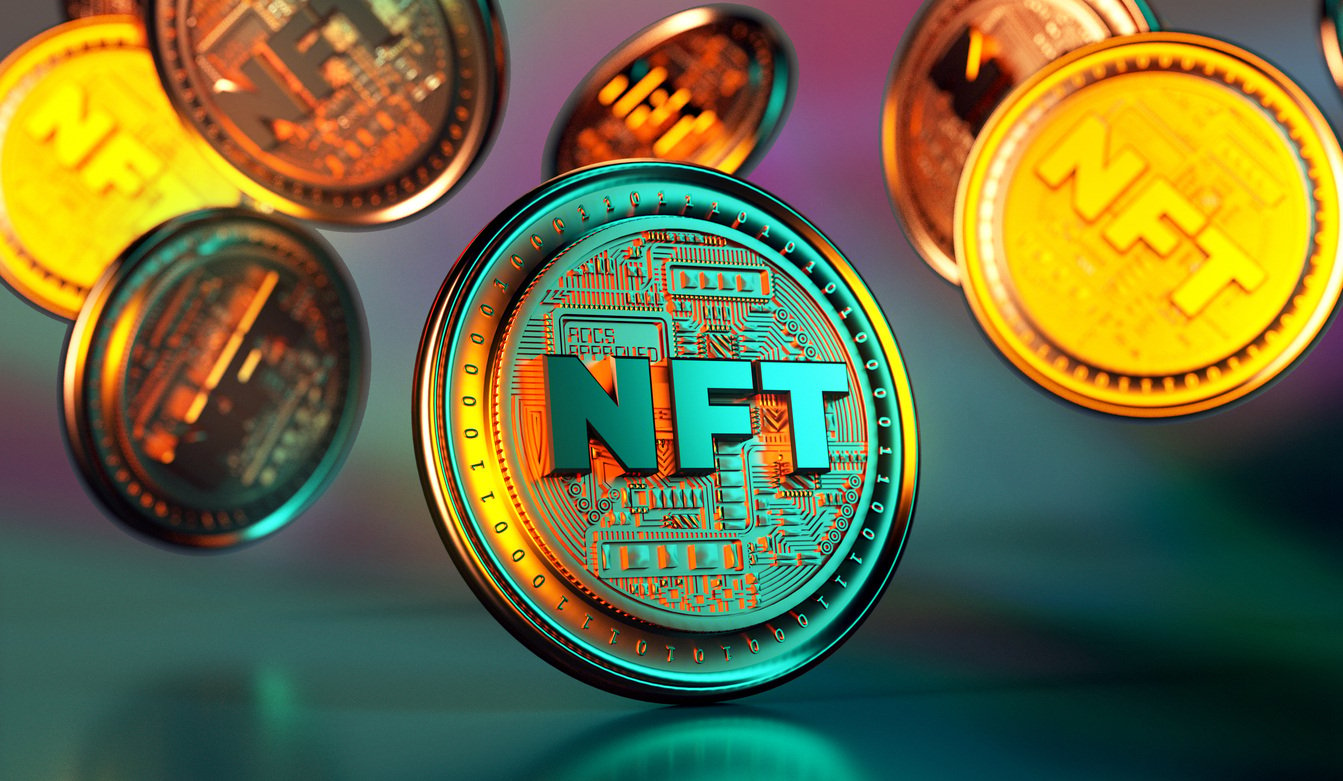4 min read
Master the art of digital modeling and boost your online presence!
Digital Modeling: Revolutionizing the Virtual World Introduction Digital modeling, also known as 3D modeling, is the process of creating virtual...
3 min read
The Amazing Team at Virtual Marketer Max : Aug 1, 2024 7:55:46 AM
The concept of a digital twin is revolutionizing various industries across the globe, especially in the USA. A digital twin is a virtual replica of a physical entity, system, or process that allows for real-time monitoring, analysis, and optimization. It leverages technologies such as the Internet of Things (IoT), artificial intelligence (AI), and data analytics to create a comprehensive model that mirrors its physical counterpart. This article delves into the intricacies of digital twins, their applications, benefits, and future potential, with a focus on their relevance in the USA.
A digital twin consists of three main components: the physical entity, the virtual model, and the data connecting the two. The physical entity can be anything from a machine, a factory, or even a city. The virtual model is a digital representation of the physical entity, created using data collected from sensors and other sources. This data is continuously updated to reflect the current state of the physical entity, enabling real-time insights and decision-making.
Digital twins operate by collecting data from sensors attached to the physical entity. This data is then transmitted to the virtual model, where it is processed and analyzed using advanced algorithms. The insights gained from this analysis can be used to optimize performance, predict failures, and improve overall efficiency. For instance, in manufacturing, a digital twin of a production line can help identify bottlenecks and streamline operations.
In the USA, digital twins are transforming the manufacturing sector by enabling predictive maintenance, reducing downtime, and enhancing productivity. By creating a virtual model of a production line, manufacturers can simulate different scenarios, test new processes, and optimize operations without disrupting the actual production. This not only saves time and resources but also improves the quality of the products.
The healthcare industry in the USA is leveraging digital twins to enhance patient care and improve operational efficiency. Digital twins of medical devices and equipment enable real-time monitoring and predictive maintenance, reducing the risk of failures and ensuring optimal performance. Additionally, digital twins of patients, created using data from wearable devices and electronic health records, allow for personalized treatment plans and better management of chronic conditions.
Digital twins are playing a crucial role in the development of smart cities in the USA. By creating virtual models of urban infrastructure, city planners can monitor and manage resources more efficiently, improve traffic flow, and enhance public safety. For example, a digital twin of a city’s transportation system can help optimize traffic signals and reduce congestion, improving the overall quality of life for residents.
In the energy sector, digital twins are being used to optimize the performance of power plants, reduce emissions, and improve grid reliability. By creating virtual models of energy assets, operators can monitor their performance in real time, predict failures, and implement proactive maintenance strategies. This not only ensures a steady supply of energy but also reduces operational costs and environmental impact.
Digital twins enable organizations to optimize their operations and improve efficiency by providing real-time insights and predictive analytics. This allows for better decision-making, reduced downtime, and enhanced productivity.
By enabling predictive maintenance and reducing the risk of failures, digital twins help organizations save on maintenance and repair costs. Additionally, the ability to simulate different scenarios and test new processes virtually reduces the need for physical prototypes, saving time and resources.
Digital twins allow for continuous monitoring and optimization of production processes, leading to improved product quality. By identifying and addressing issues in real time, organizations can ensure that their products meet the highest standards.
In industries such as healthcare and smart cities, digital twins enable personalized services and improved customer experiences. By leveraging data and insights from digital twins, organizations can offer tailored solutions that meet the specific needs of their customers.
The future of digital twins is promising, with advancements in AI, IoT, and data analytics driving their adoption across various industries. As these technologies continue to evolve, digital twins will become more sophisticated and capable, enabling even greater levels of optimization and innovation. In the USA, the adoption of digital twins is expected to accelerate, driven by the need for improved efficiency, cost savings, and enhanced customer experiences.
Digital twins are transforming industries in the USA by enabling real-time monitoring, predictive analytics, and optimization. From manufacturing and healthcare to smart cities and the energy sector, the applications and benefits of digital twins are vast and varied. As technology continues to advance, digital twins will play an increasingly important role in driving innovation and efficiency across various domains. For businesses looking to stay ahead of the curve, understanding and implementing digital twin technology is crucial.
For those interested in exploring the potential of digital twins and other cutting-edge technologies, check out Virtual Marketer Max - The top virtual influencer for brands & Create your own AI Instagram influencer in the USA.
For more insights into digital twins and related technologies, visit Virtual Marketer Max.

4 min read
Digital Modeling: Revolutionizing the Virtual World Introduction Digital modeling, also known as 3D modeling, is the process of creating virtual...
4 min read
Digital avatars have become an integral part of our online experience, transforming the way we interact, communicate, and even conduct business in...

5 min read
Discover the World of NFT Marketing Non-fungible tokens (NFTs) have taken the digital world by storm, transforming the way we think about ownership,...